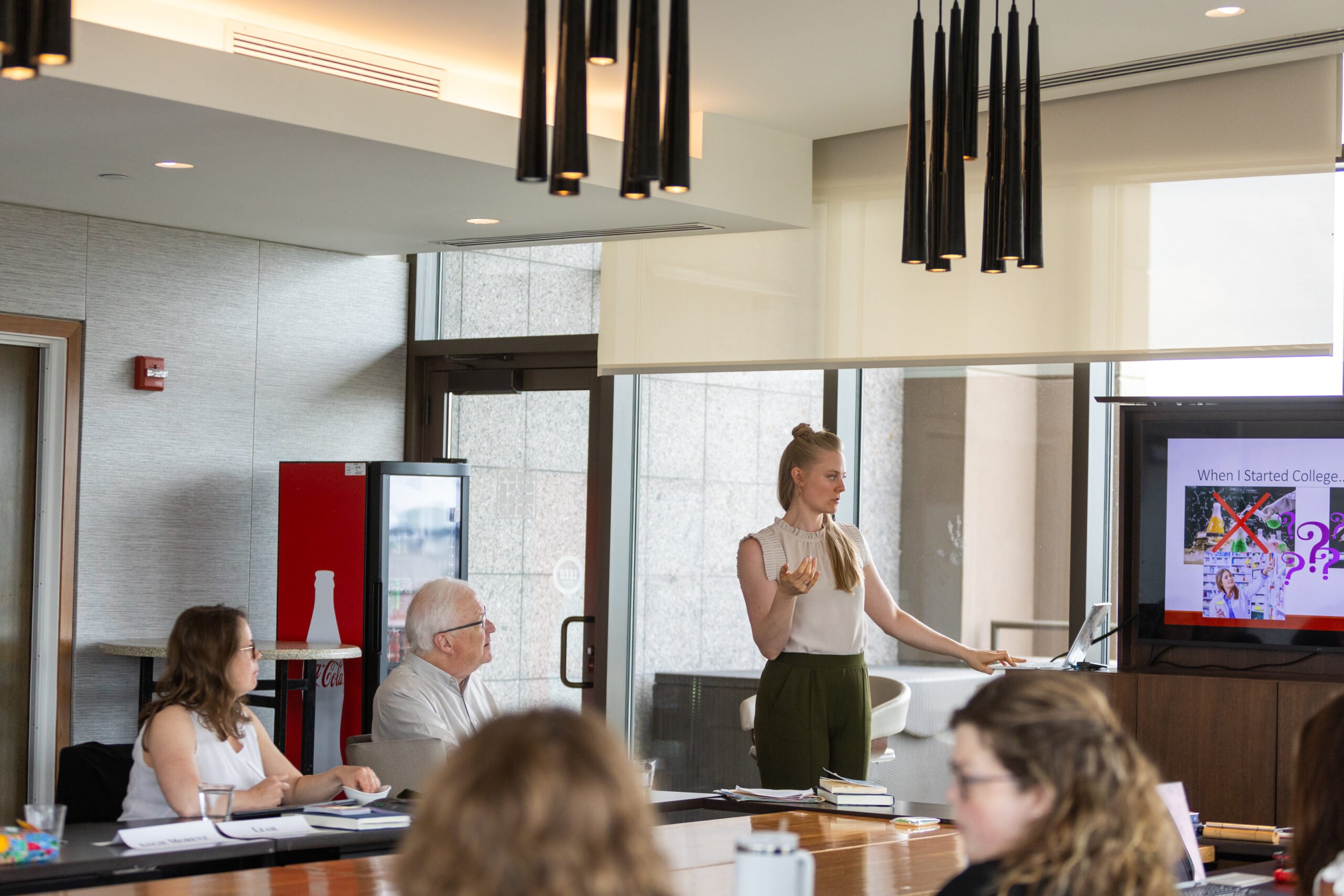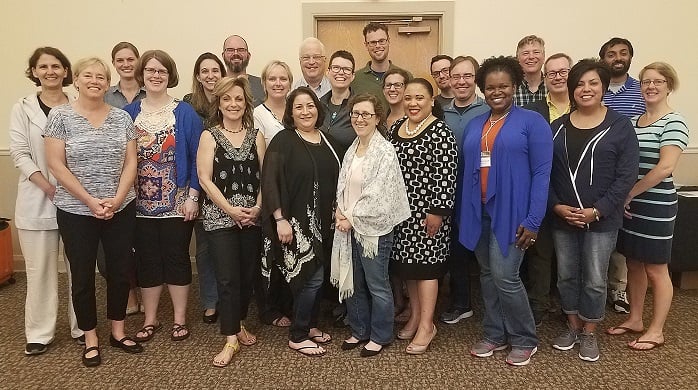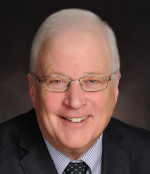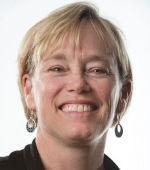CIC is pleased to offer a multidisciplinary seminar, Teaching Vocational Exploration, for full-time faculty members in all fields at colleges and universities that are members of the Network for Vocation in Undergraduate Education (NetVUE). The seminar is designed for early- to mid-career faculty members at the rank of assistant or associate professor or the equivalent. Participants learned to strengthen the teaching of vocational exploration by probing a variety of understandings of vocation and their importance in educating undergraduates, by developing new courses or course materials or redesigning existing courses, and by establishing a broader network of faculty members committed to teaching vocational exploration.
Read further for more information; alternatively, you can download our flyer for the seminar on Teaching Vocational Exploration.
The 2026 seminar on Teaching Vocational Exploration will be held June 2-6 in Indianapolis; click here for information on that event, including nomination details.

Thanks to a generous grant from Lilly Endowment Inc., CIC will cover most costs of participation for those faculty members who are selected.
One of the most promising ways that faculty members can serve their students is to introduce them to the subject of vocation. What would it mean for students to think of themselves as “called” or “summoned” to use their intellect and abilities to have an impact on the world by doing good? Faculty members committed to vocational exploration strive to help students discover what could constitute a truly good, meaningful, and flourishing life that would lead to well-being for themselves and others. This work can expand, deepen, and enrich faculty members’ understanding of the privilege and responsibility of their own callings as teachers.
Participating faculty members had the opportunity to strengthen their teaching of vocational exploration through three specific emphases of the seminar:
- examining different meanings of “vocation” and their importance for undergraduate education;
- considering content and teaching methods for courses that focus on vocational exploration; and
- reflecting on the shape and experience of the academic vocation.


Discussions also focused on mentoring students for ongoing vocational exploration, understanding the characteristics of emerging adults, and considering how social, cultural, and institutional dynamics both facilitate and hinder living out one’s vocation. In preparation for the seminar, participants were expected to read a significant selection of materials on vocation and to submit a brief written reflection. They also were expected, in the academic year following the seminar, to develop a new course or course materials or to redesign an existing course with greater focus on vocational exploration. Seminar participants are invited to gather again, the following summer, for a short weekend “reunion,” in which they will be asked to share their experiences of implementing their plans in their classrooms.
Current Status
Up to 16 participants were selected each year by competitive nomination. NetVUE member colleges and universities may nominate one full-time faculty member—in any discipline or department—at the rank of assistant or associate professor or the equivalent. Selected participants are notified in early December each year for the following summer’s seminar.
Seminar Leaders

Paul J. Wadell is professor emeritus of theology and religious studies at St. Norbert College. From 2000 to 2010, he was coordinator for faculty and staff development of St. Norbert’s Faith, Learning, and Vocation program. Previously, he taught for many years at Catholic Theological Union. His principal areas of scholarly interest include virtue ethics, the role of friendship in the moral life, and theological and ethical dimensions of vocation. He is the co-author of Living Vocationally: The Journey of the Called Life (2021) and the author of a number of other books, including Happiness and the Christian Moral Life: An Introduction to Christian Ethics (2007), Becoming Friends: Worship, Justice, and the Practice of Christian Friendship (2002), and Friendship and the Moral Life (1989). Wadell participated in the NetVUE Scholarly Resources Project and wrote “An Itinerary of Hope: Called to a Magnanimous Way of Life” in At This Time and In This Place: Vocation and Higher Education (2016). He served as a member of the NetVUE Advisory Council from 2010 to 2020. Wadell earned a BA in English from Bellarmine University, an MDiv and MA in theology from Catholic Theological Union, and a PhD in theology from the University of Notre Dame.

Darby Kathleen Ray is the Donald W. and Ann M. Harward Professor of Civic Engagement at Bates College, where she also is professor of religious studies and director of the Harward Center for Community Partnerships. At Bates, she leads institutional strategy and program development in support of the college’s civic mission, teaches in religious studies, leads workshops and seminars in community-engaged learning and research, and develops college-community collaborations. Previously, Ray was a professor of religious studies at Millsaps College, where she also was founding director of the Millsaps Faith and Work Initiative. She is the author of Working (2011), Incarnation and Imagination: A Christian Ethic of Ingenuity (2008), and Theology That Matters: Ecology, Economy, and God (2006). She also participated in the NetVUE Scholarly Resources Project and wrote “Self, World, and the Space Between: Community Engagement as Vocational Discernment” in At This Time and In This Place: Vocation and Higher Education (2016). Ray earned a BA from Sewanee: The University of the South and an MA and PhD from Vanderbilt University—all in religion.
Participants, Location, and Expenses
The seminar takes place in June each year, at a location in the Midwest. Nominations are received in the fall for the following summer’s seminar; participants are selected and notified in December. The 2025 Seminar was held June 2–6, 2025, at the Alexander Hotel in Indianapolis. Sixteen faculty members were selected for this seminar by competitive nomination. Thanks to generous support from Lilly Endowment Inc., CIC will cover most seminar costs, including materials, lodging, and meals, and will provide a travel reimbursement of up to $800 per participant. Since the first seminar in 2017, a total of 97 participants have been selected for this program.
Contact Information
For questions about the seminar or the nomination process, contact David S. Cunningham, director of NetVUE, at (616) 632-1060 or dcunningham@cic.edu.
About NetVUE
Learn more about NetVUE, including the array of programs and services that are available to member institutions.

To report a technical problem with the website, or to offer suggestions for navigation and content issues, please contact Alex Stephenson, NetVUE communications coordinator, at astephenson@cic.edu.



